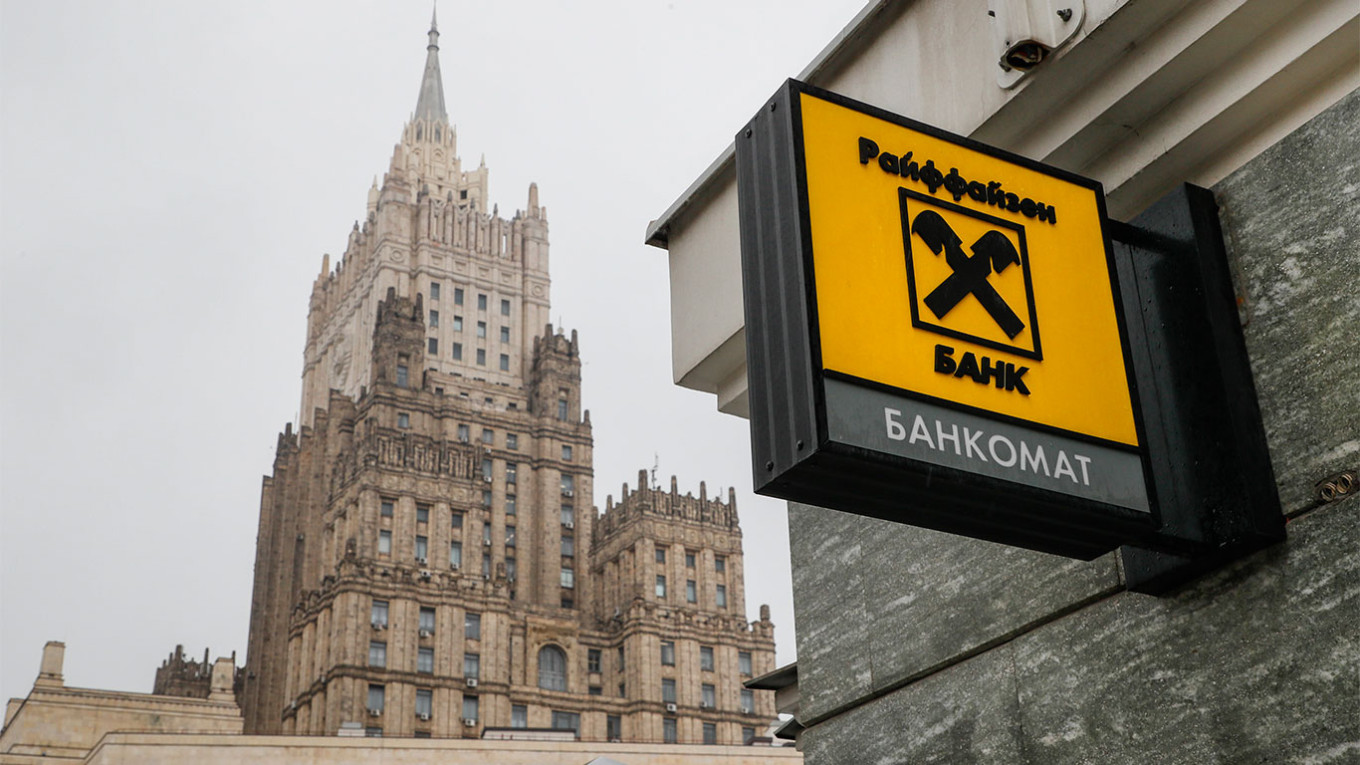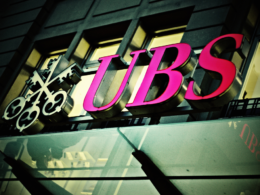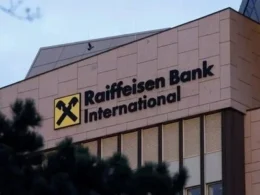The EU's major banks operating in Russia paid the Kremlin more than €800 million or over $857 million in taxes last year, a fourfold increase from pre-war levels, despite promises to reduce their operations in Russia following the 2022 full-scale invasion of Ukraine, according to The Financial Times.
These profits were partly generated by funds that the banks cannot withdraw from Russia due to regulatory restrictions imposed in 2022 prohibiting dividend payouts from Russian subsidiaries to businesses from "unfriendly" Western countries.
Higher interest rates, with the Russian central bank's key rate now at 16%, almost double the pre-invasion level, also boosted the banks' earnings from their floating-rate loans and accumulation of extra income from funds trapped in Russian deposit accounts.
Locked-up cash
The seven top European lenders by Russian assets – Raiffeisen Bank International, UniCredit, ING, Commerzbank, Deutsche Bank, Intesa Sanpaolo, and OTP – reported combined profits exceeding €3 billion in 2023, triple the amount from 2021.
“We can’t do anything with Russian deposits apart from keeping them with the central bank. So as interest rates went up, so did our profits,” a senior executive at a European bank with a Russian subsidiary told FT.
Profitability and tax gains for the Kremlin surged partly because international sanctions cut most Russian banks off from the SWIFT payment system, making the remaining international banks key financial conduits between Moscow and the West, thereby boosting their fee income.
An analysis by the Financial Times shows that the surge in profitability led European banks to pay about €800 million in taxes, up from €200 million in 2021. Additionally, this came alongside increased profits at US lenders such as Citigroup and JPMorgan.
Austria's Raiffeisen
More than half of the €800 million tax payments corresponded to Austria's Raiffeisen Bank International, which has the largest presence in Russia of the foreign lenders. RBI's Russian profits more than tripled to €1.8 billion between 2021 and 2023, accounting for half of the Austrian group's total profit, compared to about a third before the war. In addition to regular tax contributions, Raiffeisen paid €47 million as a result of a windfall levy the Kremlin imposed on some companies last year.
Despite promising to scale back in Russia after Moscow’s full-scale invasion of Ukraine in 2022 and facing ongoing criticism from the European Central Bank and US Treasury for dragging its feet, RBI has cut its Russian loan book by 56% since early 2022, FT says. Yet, recent job ads by Raiffeisen in Russia, as earlier reported by the Financial Times, hint at plans for a major expansion of its client base.
Earlier, Austria supported the 12th EU sanctions package on Russia only after Ukraine removed RBI from a symbolic blacklist of “international sponsors of war,” aimed at pressuring companies doing business in Russia.
Other EU banks
Representatives from Deutsche Bank, Hungary’s OTP, and Commerzbank told FT that they had significantly reduced their already small presence in Russia compared to Raiffasen. Italy's Intesa is closest to exiting, although it has not yet sold its Russian business, while UniCredit declined to comment.
US banks
While US lenders like Citigroup and JPMorgan also paid taxes on their downsized Russian operations last year, the international banks' combined revenue, profit, and tax figures have fallen since 2022 but remain much higher than pre-invasion results.
Read also:
- Raiffeisen Bank’s job postings in Russia spark questions about its exit pledge
- Samsung Pay to drop Russian Mir payment card in April
- Ukraine’s anti-corruption agency recognizes Austrian Raiffeisen Bank as sponsor of Russia’s war
- Ukraine removes Hungarian OTP bank from sanctions list, hoping to get military aid unblocked




